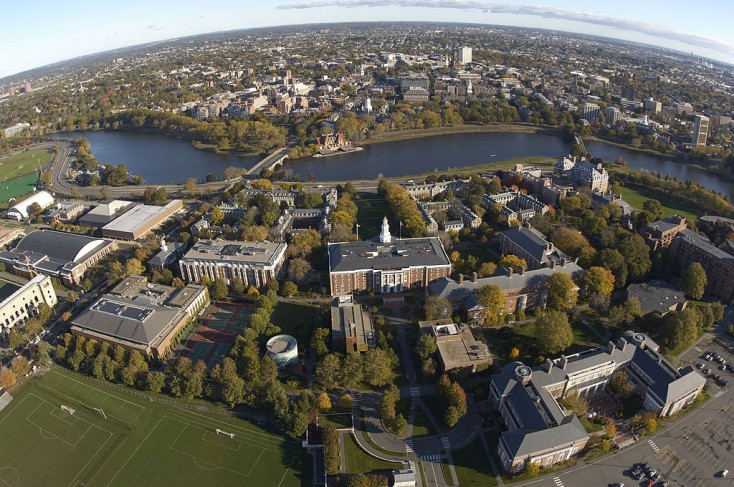
Next week, anxious Round 2 candidates to Harvard Business School will receive news of their fate when interview invites go out on January 28th and 31st. In his recent post on the Director’s Blog, admissions head Chad Losee reveals that HBS interviews about 1 in 5 applicants and admits just over half of those candidates. If you can successfully pass the hurdle that is the Harvard Business School interview, your chances of admission skyrocket.
What to expect in a Harvard Business School interview
Unfortunately, you can’t predict which specific questions will come up during your interview. But, you can expect the types of questions to fall into three broad categories representing your past, present, and future.
The interviewer will probe in great depth about your career goals, professional choices, and interest in the MBA program. He or she will be very familiar with your essays — so familiar, in fact, that your interviewer will seem determined to find a “hole” in your story.
The anecdotes you share about your past experiences — both successes and failures — will give the interviewer some insight into your self-awareness and maturity. Your story should reveal how you confront life choices, the values and principles that help you negotiate complex situations, your beliefs, and your worldview.
Expect to receive a number of questions during your Harvard Business School interview that will help your interviewer gauge how life has tested you, and how you responded to that test.
Prepare for probing questions
Because your HBS interviewer has already seen your application, many of the questions about past experiences will leverage what he or she knows about you from your essays. Be prepared for specific questions, such as:
Why did you make a particular career choice?
If there’s a single characteristic that summarizes what the admissions team looks for in successful candidates, it would be leadership potential. Provide concrete examples and tangible evidence that you achieved something important by leading others.
Why do you want to go to HBS?
Show that you’ve done your homework on the program, whether you’ve interviewed students, alumni, and professors, sat in on classes, or regularly read several student and professor’s blogs.
Share how HBS can help you achieve your post-business-school goals. It is also important to give insights on your personal and unique motives for choosing HBS.
What books are you reading?
Don’t treat this one like a throw-away question. It offers your interviewer more insight into what you value and who you are — provided you present a thoughtful answer. It’s OK to diverge from being all business; in fact, it’s often better to reveal some other interests.
Why did you major in Art History (or your particular major)?
These sorts of questions provide an opportunity to reveal your motives, thought process, and values.
Dress rehearsal is a must
Practicing the answers to potential interview questions out loud is actually very different than rehearsing them mentally. Don’t let the interview be the first time you tell your stories out loud. Do a mock interview with a trusted friend, or even alone in front of a mirror.
Rehearsing will make you feel calm and come off as more polished during the actual interview, and the conversation will flow in a much more relaxed way.
Be prepared to ask questions during your Harvard Business School interview
Unlike most other MBA interview formats, not all interviewers give applicants an opportunity to ask questions at the end. However, you should be prepared in case they do. Come armed with a brief list of questions that highlight your knowledge of and interest in the school. If interviewing with an alum, it’s easy to engage in a comfortable conversation about their experience at the school.
Don’t panic over the post-interview reflection
The “post-interview reflection” has no official word limit and is due within 24 hours of the interview. Former MBA admissions director Dee Leopold likened this assignment to an email follow-up you might send after a meeting.
The admissions team wants to know how the interviewee perceives the interview experience. They want to see how you synthesize and digest the exchange. Additionally, the want to determine how well you can communicate without the luxury of extensive rewrites and time to polish your answer.
Though the point of this assignment is to demonstrate your ability to think and work quickly, you should plan what you might write about in advance. Before you go into the interview, make a list of three or four aspects of your application you either want to highlight or reinforce in this post-interview reflection. Don’t spend a lot of time writing. While there’s no strict word limit, resist the temptation to recap every point and question.
Don’t use this essay to explain every negative moment from the interview. Likewise, don’t overload the reader with information you fear your interview didn’t convey. Again, keep the email model in mind. Corral the diverse points from the interview into a short, readable piece that helps emphasize your strengths.
Admissions professionals often say that an MBA interview won’t get you in, but it might keep you out. Remember, HBS admits about half of the candidates it interviews. Use these tips to boost your chances.
The post Mastering the Harvard Business School Interview appeared first on Stacy Blackman Consulting - MBA Admissions Consulting.
